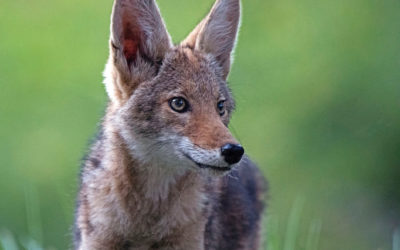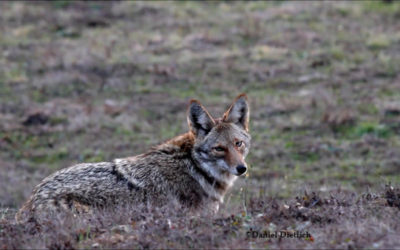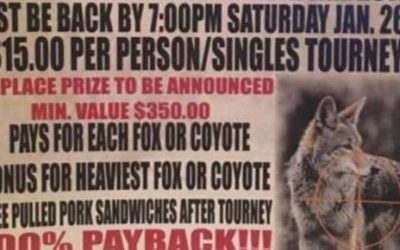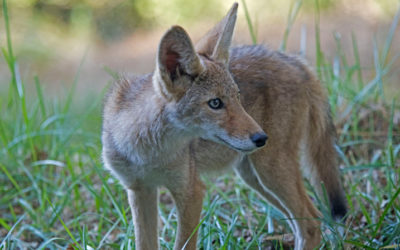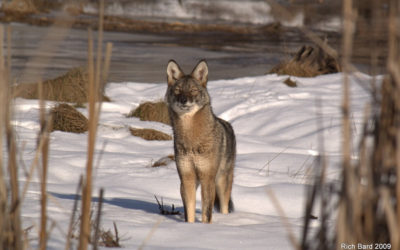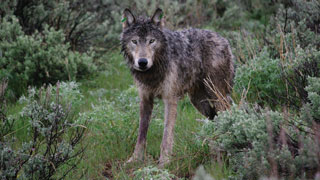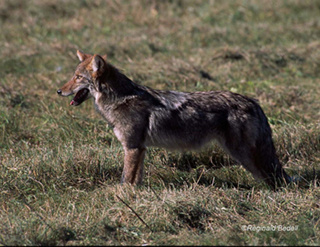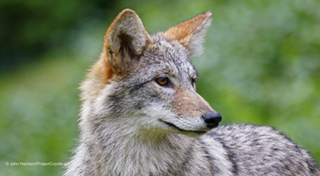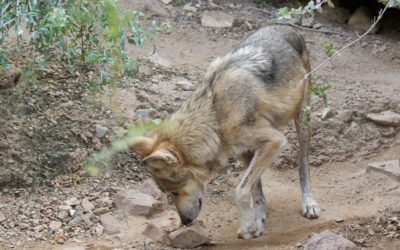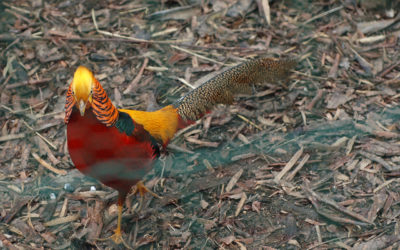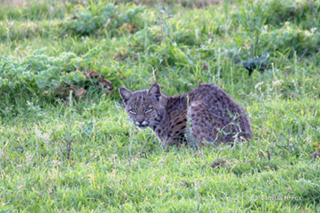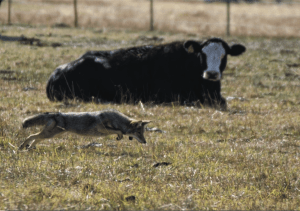There’s a Coyote in Central Park. Don’t Panic.
“Do not feed coyotes,” the police implored people heading into Central Park this week. If you see one, they added, try to “appreciate” it “from a distance.” And, of course, “Protect your pets.” The New York Police Department’s message, shared on Twitter, prompted a wave of news reports, along with a few questions on social media. So, we talked to some coyote experts.
Point of View: It’s time to end wildlife killing contests in Oklahoma
One morning in the 1930s in Yellowstone, biologist Adolph Murie watched a trotting coyote joyously toss a sprig of sagebrush in the air with her mouth, adroitly catch it, and repeat the act every few yards. Murie was conducting a study to prove that coyotes were “the archpredator of our time.” But the biologist, whose work ultimately exonerated the animals, was more impressed by that sprig-tossing — proof of the joy a coyote took in being alive.
St. Paul bans wildlife killing contests in unanimous City Council vote
ST. PAUL, Minn. – Wildlife killing contests, where contestants kill coyotes or other animals en masse for entertainment and prizes, were banned by the St. Paul City Council in an ordinance Wednesday. In a unanimous vote, the council passed the ordinance banning, “the indiscriminate killing of wildlife in the form of wildlife killing contests.”
St. Paul City Council resolution on wildlife killing contest
The St. Paul City Council just issued a resolution condemning wildlife killing contests, in which participants compete to kill the largest, the smallest, or the greatest number of coyotes, foxes, and other species for cash and prizes.
Coyotes figured out how to survive in the city. Can urban Coloradans learn to coexist?
It happened quickly and quietly. In fact, it was the silence that made David Brosh wonder why the family’s two white Westies, taking a quick bedtime potty break, hadn’t barked to come back inside.
State to prohibit coyote hunting contests
BOSTON — The state Fisheries and Wildlife Board voted Wednesday to approve regulations prohibiting contests that promote the hunting of predators and furbearers.
One ranch, 26 wolves killed: Fight over endangered predators divides ranchers and conservationists
LAURIER, Wash. —
When Washington ranchers find that gray wolves have attacked their cattle, they can call the state wildlife agency, which has killed 31 of the protected predators since 2012 under a program intended to save vulnerable livestock.
Massachusetts outlaws destructive wildlife killing contests
Boston, MA – A coalition of leading wildlife protection organizations is applauding MassWildlife staff and the Massachusetts Fisheries and Wildlife Board for their vote today to ban wildlife killing contests in the Commonwealth.
Marin hike: It may be winter, but it’s Valentine’s Day for owls and coyotes
While we are gearing up for Christmas, Hanukkah and Kwanzaa, some of Marin’s wildlife are already onto Valentine’s Day. I love listening for the courtship calls of the great-horned owls this time of year. They court for about a month before nesting in January and February.
Protest planned over Bald Head’s lethal cull of coyotes
As Bald Head Island leaders carry forth the possibility of a lethal cull of coyotes this winter, protesters plan a public event against it on Sunday, December 15, at 11 a.m. in front of Deep Point Marina, the mainland dock for transit to the island.
TrapFree New Mexico Map Details Cruel Incidents
SANTA FE — Monday, conservation and animal protection groups as part of the TrapFree New Mexico coalition have released a map detailing trapping incidents around the state. The map shows trapping’s toll all across New Mexico, demonstrating that trapping is an ongoing problem for companion animals, endangered species and law enforcement alike.
It’s time to end animal trapping in N.M.
Despite overwhelming support from New Mexicans to eliminate cruel trapping practices — some 69 percent of voters disapprove of the use of traps or snares on our public lands — the rules currently being considered by the State Game Commission do not go far enough. The people of New Mexico need to speak up before time runs out.
OURS: Brood counts blow holes in predator bounty rationale
Initial results from the state’s Nest Predator Bounty Program appear less than promising. The state spent nearly $1 million to distribute 16,000 live traps and an additional $500,000 on bounties to incentivize the killing of 54,000 pheasant predators — foxes, skunks, raccoons and others. Mostly raccoons. The state rewarded $10 for each of the first 50,000 tails submitted. The outcome for pheasants? You decide.
California Just Became the First State to Ban Fur Trapping
California just became the first state in the country to ban fur trapping, solidifying its position as a trailblazer on wildlife issues. The Wildlife Protection Act of 2019, which Governor Gavin Newsom signed into law yesterday, bans commercial and recreational trapping animals for their fur on both public and private lands.
AZ Governor’s Regulatory Review Council Approves Rule Banning Wildlife Killing Contests
Phoenix, AZ – Today the Governor’s Regulatory Review Council (GRRC) approved a rule banning wildlife killing contests for predatory and furbearing species in Arizona. For months a powerful coalition comprised of concerned citizens and wildlife conservation organizations has been working to ban wildlife killing contests statewide. The Arizona Game and Fish Department (AZGFD) passed the initial rule unanimously on June 21st.
Citizens Stand Up to Protect California’s Wildlife
As native carnivores, bobcats (Lynx rufus) are an indicator species of ecosystem health. Yet they face growing challenges as their habitat disappears and human impacts increasingly affect their ability to survive. Fortunately, lawmakers and a coalition of organizations are advancing bills through this session of the California State Legislature that, if passed, would protect bobcats from cruel and senseless killing.
Lawsuit challenges federal predator control program in Northern California counties
Three environmental groups filed a lawsuit Tuesday in federal court seeking to halt part of a controversial government program that kills predators, including coyotes, bears and mountain lions, in ways that the groups allege are cruel, outdated and ineffective. The lawsuit challenges a U.S. Department of Agriculture program called Wildlife Services that uses leg-hold traps, strangulation snares, poisons and guns to kill animals at taxpayer expense, mostly to benefit livestock operations.
Coyotes Can Protect Your Livestock From Predators
Livestock losses are an unfortunate reality of ranching and the use of traps and snares is a common way to attempt to reduce predator-livestock conflict. However, one USDA study (Shivik et al. 2003) noted that for many types of predators, there is a paradoxical relationship between the number of predators removed and the number of livestock killed. Surprisingly, these researchers found that as more predators were removed, more livestock were killed.

